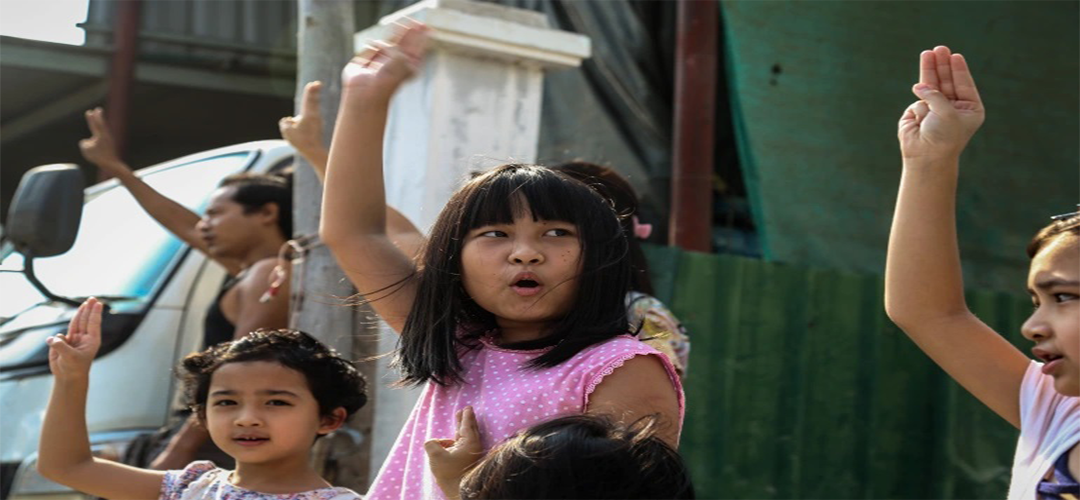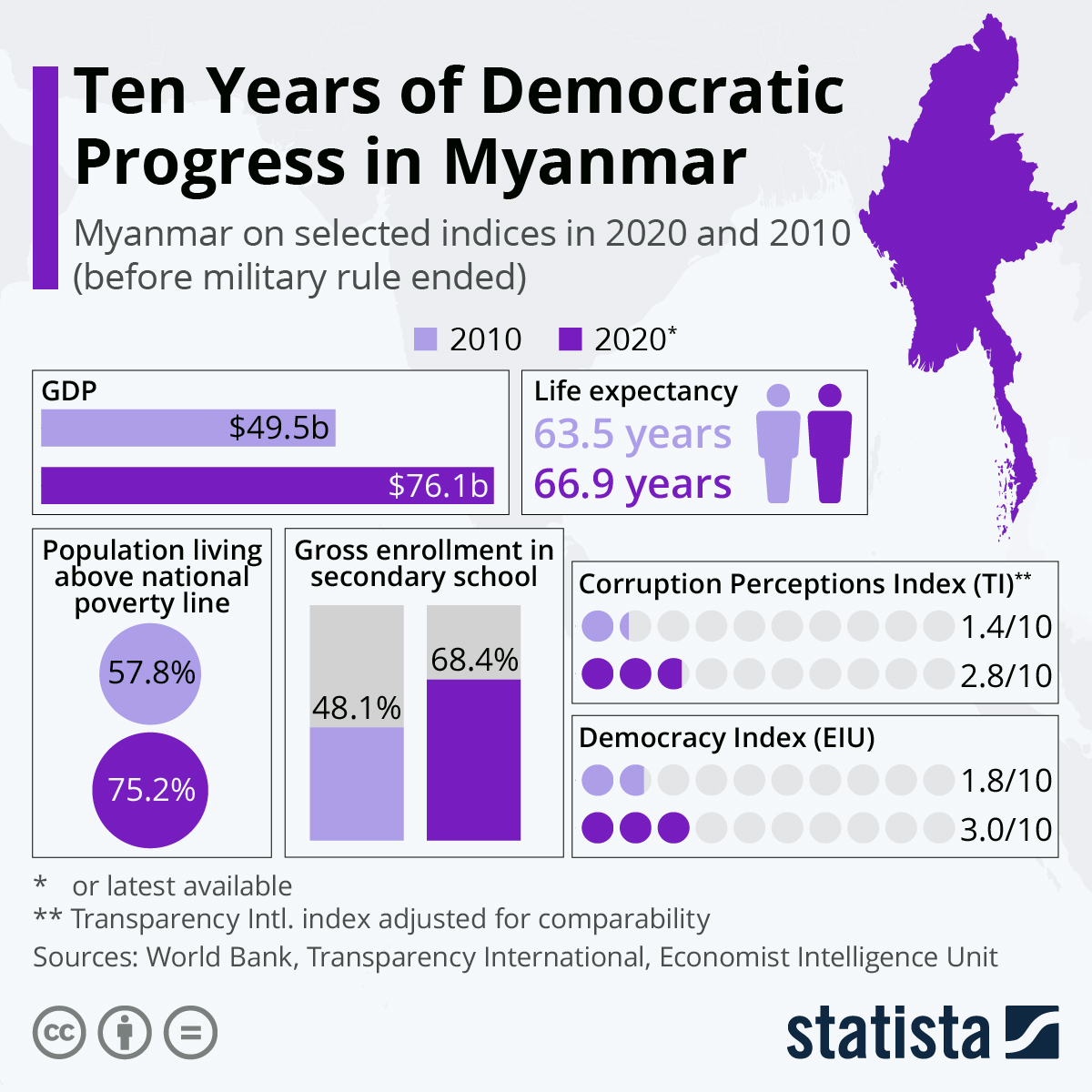A LOST GENERATION
July 2, 2022 | Expert Insights

Tom Andrews, UN Special Rapporteur on human rights in Myanmar, recently rang a dire warning to the international community. He accused the Myanmar military of mounting 'relentless attacks' on children since seizing power in February 2021, creating a “lost generation” of children.
Background
Last December, the icon of Myanmar’s fledgling democracy, Ms Aung San Suu Kyi, fell from grace as she was found guilty of inciting dissent and breaking Covid rules. Through a bloodless coup engineered in the judicial benches, the democratically elected government was evicted, and its leader jailed for life. UN Human Rights chief Michelle Bachelet called it a "sham trial" that would only "deepen rejection of the coup".
As the youth of the nation erupted in a spontaneous outburst of support, violence wrecked the nation. The military junta used the disturbances to tighten their control using the most violent means to suppress the popular unrest. Protest leaders fled into the jungles, seeking shelter and armed support from the plethora of rebel groups that have been unsuccessfully fighting the military for decades.
Myanmar acceded to the Child Rights Convention in 1991, but children in the country are under siege and facing a catastrophic loss of life since the military coup led by Min Aung Hlaing came into power last year. Records for last year show that some victims were killed in their own homes, including a six-year-old girl in the city of Mandalay, who was shot in the stomach by police and died in her father’s arms during a protest against the junta. Whole families accused of supporting Aung San Suu Kyi and her party have fled their homes along with small school-going children into the deep jungles, with little food, shelter, and medical care available. Some have been given asylum in neighbouring countries but many more replaced trapped between a tightly policed border and the military junta, which is in no mood to relent its stranglehold.

Analysis
Myanmar, the poorest country in Southeast Asia, is facing major disruption and upsetting of essential medical care and school education in the entire country. In an already impoverished country long devastated by sanctions, access to safe drinking water and food for children in rural areas has always been scarce. The continuing turmoil has disrupted even these perilous lifelines.
As in all conflict situations, children are the most vulnerable victims. Children are not only being caught in the crossfire of the military's crackdown on opponents but are also being deliberately targeted in crimes against humanity and war crimes to create fear and panic.
According to a monitoring group, the Assistance Association for Political Prisoners, nearly 2,000 people have been killed by the military since the coup took hold of the country. More than 11,000 are in detention. As per Tom Andrews, UN Special Rapporteur on human rights in Myanmar, the military has killed at least 142 children and promptly detained more than 1,400. More than 61 children, including several under three years of age, are presumably being held as hostages, while the United Nations says it has documented the torture of 142 children. “I received information about children who were beaten, stabbed, burned with cigarettes, and subjected to mock executions, and who had their fingernails and teeth pulled out during lengthy interrogation sessions,” Andrews said.
The UN estimates that about 7.8 million children are out of school as an upshot of the relentless violence in Myanmar, while tens of thousands have missed out on routine immunisations and other essential healthcare with the subside of the public health system.
Countries such as the United States, Canada, and the United Kingdom have foisted sanctions on the coup leaders and some parts of the military's sprawling business empire. In February, the European Union dilated its measures to include state-owned Myanma Oil and Gas Enterprise (MOGE), which is believed to be a lucrative source of revenue for the military, and civil society groups are urging the United States to follow suit. Just as has been witnessed in North Korea, Iran and now in Ukraine, economic sanctions do not deter authoritarian regimes as they only cause pain to the common citizens and not to the elites.
Assessment
- The attacks on children show that the international community's response to the coup has failed. Engrossed with a war that is being waged in the heart of Europe, the western democracies have no time for the sufferings of children in far-off remote reaches of Myanmar. In any case, the problems of Myanmar have so long dominated the news that it would not be surprising for ‘Myanmar fatigue’ to have set in.
- States must take coordinated action to address an escalating political, economic, and humanitarian crisis that is putting Myanmar’s children at risk of becoming a “lost generation”.
- If the crisis continues, an entire generation of children is at risk of agonising profound physical, psychological, emotional, educational, and economic consequences, bereaving them of a healthy and productive future. India must play a mitigating role as it is known to have good ties with the Myanmar government and the military.








Comments